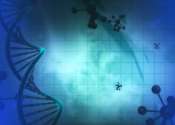How superbugs use mirror images to create antibiotic resistance
Methicillin-resistant Staphylococcus aureus (MRSA) is a bacterial infection that has become resistant to most of the antibiotics used to treat regular staph infections. Duke University computer scientist Bruce Donald and ...









